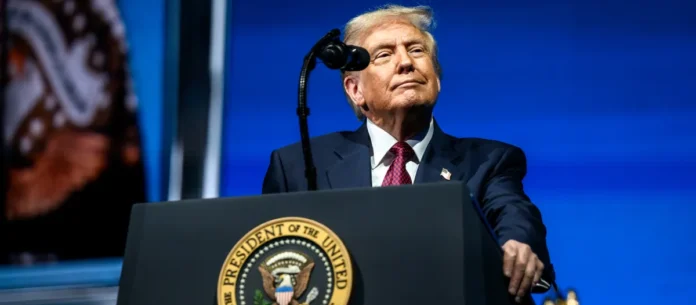President Donald Trump announced on November 7 that no U.S. official would attend the G20 summit in South Africa, dismissing the gathering as “a total disgrace”.
The boycott marks a defining moment in America’s unravelling relationship with global cooperation on climate, health, and sustainability.
Trump’s explanation was rooted in false claims about “white farmers being slaughtered” in South Africa. Pretoria swiftly rejected the remarks as baseless. But beneath the political theatre lies a deeper issue. The U.S. has lost interest in most of the G20’s working groups, especially those tackling climate change, renewable energy, health, and water management. The Trump administration’s absence is not out of ignorance, but rather policy.
The boycott capped months of friction across the G20’s working groups, from climate to health. At the G20 Environment and Climate Sustainability Working Group (ECSWG) in Cape Town, U.S. officials refused to endorse the inclusion of the UN’s Sustainable Development Goals in the final communiqué, arguing that “global agendas are not America’s responsibility.”
Just recently, at the G20 Health Ministers’ Working Group in Limpopo, the U.S. delegation walked out mid-session after objecting to paragraphs reaffirming the Paris Agreement and the WHO Pandemic Treaty.
These actions echo the American administration’s wider global strategy. Since returning to office, Trump has revived his first-term playbook of withdrawing from multilateral climate commitments, dismantling environmental rules, and cutting U.S. funding for global institutions.
The US will formally leave the World Health Organization again in January 2026. At home, environmental standards have been rolled back and fossil fuel expansion rebranded as “energy independence” and “drill baby, drill.”
U.S. officials have since said that Washington intends to “pare back” the G20 to its “financial core,” by cutting working groups on energy, environment, health, and trade. Treasury Secretary, Scott Bessent, said the 2026 Miami G20 will “focus on finance and growth, not global agendas.”
Trump’s energy secretary, Chris Wright, recently dismissed the global energy transition as “a fantasy.” He told a transatlantic energy forum that renewables “aren’t bearing fruit” and that the world should “double down on oil and gas.” Such comments reflect a governing philosophy that treats climate policy as an ideological enemy or faux tale.
South African officials have voiced frustration. Sources close to the Department of Forestry, Fisheries and the Environment (DFFE) said U.S. resistance “derailed productive dialogue” on water security and climate adaptation finance.
The Department of Health described Washington’s walkout as “deeply disappointing,” noting that joint pandemic-preparedness work is critical for Africa’s health sovereignty. Behind closed doors, officials from Kenya, Brazil, and the EU privately accused the U.S. of “turning a cooperative forum into an ideological stage.”
Political analysts warn that Washington’s retreat may fracture the G20 into parallel blocs. On one hand, we’ll have an EU-Africa-China cluster focused on sustainability, and a U.S.-led bloc on the other hand, focused on protectionism and non-interdependence. SA hosting the G20 was meant to showcase African leadership in sustainability, but instead it has exposed deepening fractures in global governance.
As Trump prepares to host the 2026 G20 in Miami, his slogan of “growth, not globalism” signals a future where multilateralism is hollowed out. For a world facing escalating climate disasters and health risks, America’s absence will leave a detrimental void.
ESG Now



